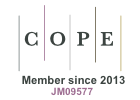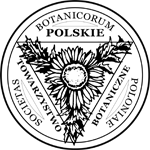Abstract
In this study, an attempt was made to investigate in vitro morphogenetic competence of three shrub species from the Thymelaeaceae family. The studied plant material originated from Russia, Greece and China, and the effectiveness of in vitro shoot formation and rhizogenesis of Daphne caucasica, D. jasminea, and D. tangutica was verified. The multiplication coefficient was compared for different propagation media. Medium composed of WPM mineral salts, MS microelements and a set of vitamins, supplemented with 1.0 mg dm-3 2iP, 0.1 mg dm-3 NAA, and 0.65 g dm-3 calcium gluconate, was appropriate for micropropagation of the tested genotypes. Shoot propagation in medium containing B5 vitamins and microelements was not as effective as on WPM/MS medium. The rooting phase, especially in D. tangutica, needs further optimization in order to reduce the costs associated with acclimatization of microplantlets obtained to in vivo conditions. After stabilization, the plants were successfully cultivated under greenhouse conditions.
Keywords
regeneration capacity; micropropagation; rooting efficacy; acclimatization; Daphne sp.






